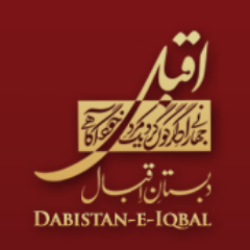
Our Philosophy and
The Challenge
The spread of secular fundamentalism and religious fundamentalism in modern society has created an unprecedented set of challenges for cultures across the globe. There is a growing consensus among sociologists and historians that these two apparently clashing fundamentalisms are opposite sides of the same coin. This is because their origins can be traced back to the absolutist, dualist and totalizing logic of the European Enlightenment. This logic has educated the modern world to think not only in non-religious terms but also in either/or terms best captured by the saying “either you are with us or you are against us.” Not unlike the global warming crisis that is threatening the natural ecology of the entire planet, the nexus of secular fundamentalism and religious fundamentalism is among the most formidable threats to a sustainable cultural ecology of the global village.
Our Philosophy
The spread of secular fundamentalism and religious fundamentalism in modern society has created an unprecedented set of challenges for cultures across the globe. There is a growing consensus among sociologists and historians that these two apparently clashing fundamentalisms are opposite sides of the same coin. This is because their origins can be traced back to the absolutist, dualist and totalizing logic of the European Enlightenment. This logic has educated the modern world to think not only in non-religious terms but also in either/or terms best captured by the saying “either you are with us or you are against us.” Not unlike the global warming crisis that is threatening the natural ecology of the entire planet, the nexus of secular fundamentalism and religious fundamentalism is among the most formidable threats to a sustainable cultural ecology of the global village.
Developments over the past fifty years leave little doubt that the established institutions of higher learning have failed to properly diagnose and treat the malaise of fundamentalism. The primary reason for this failure is the demeaning attitude of the modern university towards the wisdom of tradition. This has created a growing need for an institution that takes the wisdom of tradition seriously as it investigates and treats the crisis of modernity.
Acacia Education Foundation aspires to establish such an institution.
Background

The Crisis of Modernity
1) The seemingly intractable divides such as the North vs. the South, economics vs. ethics, growth vs. sustainability, and human rights vs. national security have been created by secular fundamentalist thought.
2) An aggressive modernist religious fundamentalism is openly challenging the distinctions between the public and the private, faith and rationality, the civil and the religious, that are at the heart of any open multi-cultural/multi-religious society.
3) It must be recognized that these apparently clashing fundamentalisms are rooted in the same absolutist, dualistic, and totalizing logic of the European Enlightenment.

The Wisdom of Tradition
4) The works of Maulana Rumi and Allama Iqbal contain deep resources for a better understanding of the crisis of modernity as well as concrete pointers to redress the crisis.
5) This wisdom of Islamic tradition is echoed by thinkers in different religious and cultural contexts e.g., Liang Shuming (China), Tagore (India), Goethe (Europe), and Berdyaev (Russia) etc.
6) After almost three centuries of mocking and ridiculing the wisdom of tradition, secular modernist thought is finally coming to recognize its value and significance.
The Name
The Name
The name of the institution is inspired by the following āyāt of Sūrah Ibrāhīm (14):
أَلَمۡ تَرَ كَیۡفَ ضَرَبَ ٱللَّهُ مَثَلࣰا كَلِمَةࣰ طَیِّبَةࣰ كَشَجَرَةࣲ طَیِّبَةٍ أَصۡلُهَا ثَابِتࣱ وَفَرۡعُهَا فِی ٱلسَّمَاۤءِ (٢٤)
تُؤۡتِیۤ أُكُلَهَا كُلَّ حِینِۭ بِإِذۡنِ رَبِّهَاۗ وَیَضۡرِبُ ٱللَّهُ ٱلۡأَمۡثَالَ لِلنَّاسِ لَعَلَّهُمۡ یَتَذَكَّرُونَ (٢٥)
Have you not considered how Allah presents an example, [making] a good word like a good tree, whose root is firmly fixed and its branches [high] in the sky? (24)
It produces its fruit all the time, by permission of its Lord. And Allah presents examples for the people that perhaps they will be reminded. (25)

The roots of a good tree are firmly planted in the earth, while its branches reach for the sky. It combines nutrients from the soil with sunlight from the heavens to transform life-threatening carbon-dioxide into life-sustaining oxygen, produce fruit that is delicious and nourishing for all living creatures, and generate medicines that cure a wide range of diseases. Acacia Education Foundation will seek to replicate the characteristics and benefits of the tree described in these āyāt. It will be rooted in the earth (a particular tradition), reaching for the sky (universally shared ideals), combine elements from the heavens (revelation) with elements from the soil (scientific knowledge) to transform life-threatening carbon dioxide (the binary logic of fundamentalism) into life-sustaining oxygen (the relational logic of scripture) and produce fruit (knowledge) that is beneficial for all living creatures.
Core Values
fidelity to own tradition
intellectual honesty
open inquiry
creative discovery
community-building across traditions
Legal Structure
This company is setup under Section 42 of the Companies Act, 2017.
Partners













